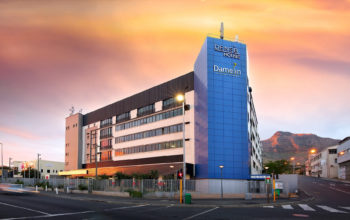By Jonk wa Mashamba
news@alexreporter.co.za
Speaking on an educational show owned by CMc Chavi called Next, Quintiniser Baloyi said young people saw the June 16 vacation as an opportunity to drink alcohol.
Baloyi, Munghana Lonene FM presenter said that many young people spent June 16 partying, braaing and drinking.
He said that there was a complete difference between the youth of 1976 and those of today, calling upon the youth to be fruitful and never lose the real meaning of the holiday.
THIS IS THE HISTORY BEHIND JUNE 16
Forty-six years ago, hundreds of young South Africans in Soweto paid the ultimate price at the hands of the apartheid police when they stood up for freedom.
The official death toll was given as 174, although many estimates are far higher than that.
But the killings didn’t end in Soweto. As news of the uprising spread to other communities, so too did the brutal police response.
On 18 June, two days after the death of Hector Pieterson and scores of others in Soweto, 34 young South Africans lost their lives in Alex as police fired live ammunition at them.

And it was in Alexandra that one of the bloodiest scenes of that 1976 uprising took place.
The first to be shot and killed was 23- year-old Japie Vilankulu.

Outraged by what had taken place in Soweto two days earlier, Japie said goodbye to his family and went to help mobilise protestors in solidarity with the fallen Soweto youth. That was the last time they saw him alive.
He was shot seven times and died carrying a rubbish bin lid he tried to use as a shield.


The official death toll was given as 174, although many estimates are far higher than that.
John Steenhuisen MP – Leader of the Democratic Alliance said young South Africans must stand up for their freedom in every generation
“Today we remember Japie and Hector and hundreds of other young South Africans who gave their lives in the struggle against injustice and oppression.
“It started as a protest for mother tongue education, and against Afrikaans as the language of instruction in schools, but what they were really fighting for was something much larger.
“They recognised a massive injustice in society, and they knew that it would be up to them to resist this injustice and demand change.
“They knew that waiting for others to do something could mean waiting too long. Their deaths over those days in June, forty-six years ago, still reverberate through our history. Their sacrifice paid for freedoms our country will never ever give up again.
“We owe it to them to cherish these freedoms, and to ensure that they mean something for us, and for generations to come.
“Youth Day is a reminder that our country’s freedom came at a very high cost, and we cannot take it for granted.”
Steenhuisen said it was also a reminder that freedom had to be won over and over again, in successive generations.

“If you see injustice, or if you think your freedom and your future is being threatened, then you cannot wait for others to do something about it.
“You, South Africa’s youth, have the most to lose and the most to gain. You must do something about it.
“I don’t need to tell you that the freedom fought for back in 1976, and finally won in 1994, has not translated into economic freedom. And particularly not for young South Africans.
“Never before has the future looked more bleak for young South Africans. Never before has the prospect of finding meaningful work, or leaving school with a useful education, been worse.
“That is not the freedom all those young South Africans sacrificed their lives for a generation ago.
“If we want that sacrifice to mean something, we have to ask why things turned out like this.
“Why do millions and millions of South Africans – most of them young – find themselves locked out of opportunity and the economy while our global peers don’t suffer this same fate?” he asked.




